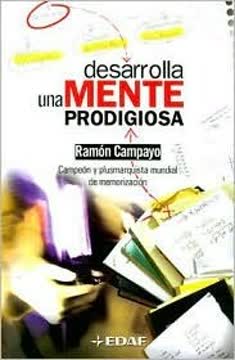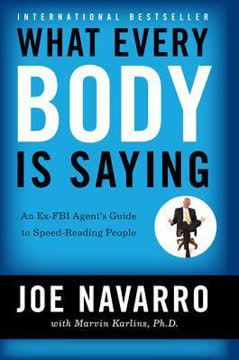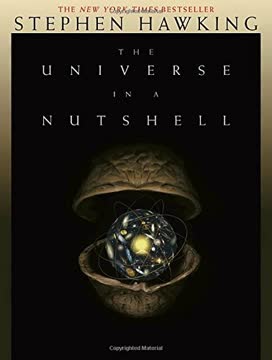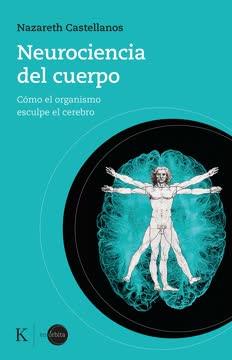Puntos clave
1. Master Your Memory: The Foundation of Effective Learning
Memory is intrinsically related to the concept of learning-this being the knowledge and reasoning of that which is memorized.
Memory types matter. Understanding the different types of memory - short-term, mid-term, and long-term - is crucial for effective learning. Visual memory is the most powerful, followed by auditory memory. The key to mastering memory lies in creating strong associations and using techniques like:
- Mental charts: Organize information into structured diagrams
- Far-fetched associations: Create unique, memorable connections between facts
- Repetition: Reinforce information through strategic review
Developing these skills allows you to transform raw information into lasting knowledge, enabling you to recall and apply it effectively in various situations.
2. Unleash the Power of Photographic Reading
We can read 1,000 words/minute, but if we are watching a movie at the cinema, we can retain information and facts that would be equivalent to 60,000 words/minute.
Speed meets comprehension. Photographic reading is not just about speed; it's about enhancing comprehension and retention. To develop this skill:
- Use a visual aid (like a pen) to guide your eyes
- Practice capturing groups of words at a time
- Aim for a "mental video" sensation as you read
By mastering photographic reading, you can dramatically increase your reading speed while maintaining or even improving comprehension. This skill is invaluable for students and professionals alike, allowing you to process vast amounts of information efficiently.
3. Craft Your Personal Study System for Maximum Retention
With our summaries and our mental maps, we will have completed our personal subject matter.
Personalize your approach. Creating an effective study system involves three key components:
- Personalization of subject matter:
- Create concise summaries
- Develop mental maps for visual organization
- Memorization:
- Use far-fetched associations for pure facts
- Apply reasoning for sequential facts
- Strategic review:
- Initial reviews to solidify basic understanding
- Conferential reviews to deepen knowledge
- Final reviews to ensure comprehensive mastery
This system allows you to transform complex subjects into manageable, memorable units of information. By tailoring your study materials and methods to your personal learning style, you maximize retention and understanding.
4. Conquer Exams: Strategies for Different Test Types
It is much better to write a little on each question rather than to brilliantly respond to half of them, leaving the rest blank and unanswered.
Adapt to the format. Different exam types require different strategies:
Essay and Short-Answer Exams:
- Read questions thoroughly
- Organize your time wisely
- Use clear, concise language
Multiple Choice Tests:
- Answer questions you're sure about first
- Use process of elimination
- Apply mathematical probability for guessing
Oral Exams:
- Practice with a video camera
- Speak slowly and clearly
- Use sophrology techniques to manage nerves
By understanding the nuances of each exam type and applying targeted strategies, you can maximize your performance and showcase your knowledge effectively.
5. Harness Your Mind's Potential: Psychometric Tests Demystified
These tests are made to evaluate the intelligence of the person who is taking them.
Understand the assessment. Psychometric tests, including intelligence and personality assessments, are increasingly common in academic and professional settings. Key points to remember:
Intelligence Tests:
- Focus on logical reasoning and pattern recognition
- Practice with numeric sequences, dominoes, and diagrammatic problems
Personality Tests:
- Answer honestly but strategically
- Be consistent in your responses
- Consider the desired traits for the position you're applying for
By familiarizing yourself with these tests and practicing regularly, you can approach them with confidence and showcase your true potential.
6. Overcome Test Anxiety: Psychological Preparation for Success
The psychological factor can normally influence our performance on an exam, making it vary between 60 and 90% of our maximum possible performance level.
Mind over matter. Psychological preparation is crucial for exam success. To overcome test anxiety:
- Develop a positive mindset towards exams
- Practice relaxation techniques regularly
- Visualize success and maintain self-confidence
Remember that nervousness is a natural response, but excessive worry can hinder performance. By focusing on preparation and maintaining a calm, confident attitude, you can significantly improve your exam performance and overall well-being.
7. Transform Worry into Action: The Key to Personal Growth
Worry is the detonator of the worst problems in every society.
Channel energy productively. Worry is often counterproductive and can lead to negative outcomes. Instead of worrying:
- Focus on what you can control
- Take decisive action to address concerns
- Reframe challenges as opportunities for growth
By transforming worry into proactive steps, you not only improve your immediate situation but also develop resilience and problem-solving skills that benefit you in all areas of life. Remember, every challenge is an opportunity to learn and grow stronger.
Última actualización:
FAQ
1. What is "Desarrolla una mente prodigiosa" by Ramón Campayo about?
- Comprehensive guide to mental power: The book is a complete course on developing mental abilities, focusing on memory, learning, and psychological preparation.
- Techniques for all levels: It covers methods suitable for beginners, students, and professionals, aiming to improve study habits, memorization, and exam performance.
- Practical exercises and systems: Campayo introduces specific exercises, mental charts, and reading techniques to enhance memory and learning speed.
- Psychological and lifestyle advice: The book also addresses psychological preparation, managing worry, and maintaining mental health for optimal performance.
2. Why should I read "Desarrolla una mente prodigiosa" by Ramón Campayo?
- Learn from a world champion: Ramón Campayo is a World Memory Champion and record holder, sharing proven techniques from his own experience.
- Boost academic and professional success: The book provides actionable strategies for excelling in exams, studies, and competitive environments.
- Holistic approach: It combines memory techniques, speed reading, psychological resilience, and health advice for comprehensive mental development.
- Practical and accessible: The methods are broken down into step-by-step exercises, making them easy to apply regardless of your starting point.
3. What are the key takeaways from "Desarrolla una mente prodigiosa" by Ramón Campayo?
- Memory is trainable: Anyone can dramatically improve their memory with the right techniques and consistent practice.
- Visualization and association: Creating vivid, far-fetched mental images and associations is the most powerful way to memorize information.
- Structured study system: Campayo’s R.C.S. (Ramon Campayo System) offers a systematic approach to summarizing, memorizing, and reviewing material.
- Psychological preparation matters: Managing stress, worry, and self-esteem is crucial for peak mental performance, especially during exams.
4. How does Ramón Campayo define and classify memory in "Desarrolla una mente prodigiosa"?
- Conscious vs. subconscious: Memory primarily resides in the subconscious, making it largely automatic and not fully under conscious control.
- Types by duration: Memory is classified as short-term (seconds), mid-term (days), and long-term (months/years).
- Types by sensory input: Visual memory is the strongest, followed by aural, taste, olfactory, tactile, and kinesthetic memory.
- Pure vs. sequential facts: Pure facts lack logical connection (e.g., dates, names), while sequential facts follow logical or predictable sequences (e.g., storylines).
5. What is the "mental chart" system in "Desarrolla una mente prodigiosa" and how does it work?
- Number-to-letter conversion: Each number is assigned specific consonants, allowing numbers to be transformed into memorable words.
- Visualization for memorization: By turning numbers into objects or words, you can create vivid mental images and far-fetched associations.
- 100-box chart: The basic chart consists of 100 boxes, each linked to a unique, easily visualized object, person, or animal.
- Expandable system: The chart can be expanded using wild-card situations or multiplicative methods to memorize thousands of items.
6. How does Ramón Campayo recommend memorizing pure facts versus sequential facts?
- Pure facts: Use far-fetched, imaginative associations to link unrelated pieces of information, making them memorable.
- Sequential facts: Rely on repetition and understanding the logical order or narrative, similar to recalling the plot of a movie.
- Order matters: Always memorize from the major focal point to the minor, and from general to specific.
- Combine techniques: For complex material, use both association for pure facts and repetition for sequential facts.
7. What is the "photographic reading" or ultra-rapid reading technique in "Desarrolla una mente prodigiosa"?
- Group word visualization: Read groups of 4-6 words at a time, pausing briefly to "photograph" them with your mind.
- Use a visual aid: Guide your eyes with a pen to maintain rhythm and focus, avoiding backtracking or subvocalization.
- Mental video creation: Aim to visualize the text as a movie in your mind, which enhances comprehension and retention.
- Speed and comprehension: With practice, reading speeds of 700+ words per minute are achievable without sacrificing understanding.
8. What is the Ramon Campayo System (R.C.S.) for studying and memorization?
- Three-phase approach: The system consists of personalizing the subject matter (summaries and mental maps), memorization, and review.
- Summaries and mental maps: Create concise, logically ordered summaries and visual mental maps to organize information.
- Color coding and margins: Use color highlights and margin notes for pure fact associations, making review and recall easier.
- Progressive depth: Start with general understanding, then deepen knowledge and detail with each review cycle.
9. How does "Desarrolla una mente prodigiosa" address psychological preparation for exams and learning?
- Manage fear and worry: The book emphasizes that fear of failure and excessive worry hinder memory and performance.
- Self-esteem and attitude: Cultivating high self-esteem and a positive, relaxed attitude is essential for success.
- Control and relaxation techniques: Practical exercises are provided to manage nerves, including breathing, muscle relaxation, and mental isolation.
- Treat yourself kindly: After setbacks, treat yourself as you would a best friend—analyzing, learning, and moving forward without self-criticism.
10. What advice does Ramón Campayo give for handling worry and stress in "Desarrolla una mente prodigiosa"?
- Worry is unproductive: Most worries are about uncertain future events and rarely materialize as feared.
- Focus on action, not anxiety: Act when needed, but avoid ruminating on outcomes you can't control.
- Attitude shift: Choose to see challenges as opportunities and maintain dignity and composure in adversity.
- Use an agenda: Offload mental burdens by writing down tasks and obligations, freeing your mind from constant reminders.
11. What are the main health and lifestyle recommendations in "Desarrolla una mente prodigiosa" for optimal mental performance?
- Balanced diet: Emphasize foods rich in phosphorus, magnesium, and vitamins A and D for brain health.
- Regular physical activity: Exercise improves blood flow, clears the mind, and reduces stress.
- Adequate rest: Sufficient sleep and breaks during study sessions are crucial for memory consolidation and mental freshness.
- Study environment: Ensure good lighting, comfortable seating, and minimal distractions for effective learning.
12. What are the best quotes from "Desarrolla una mente prodigiosa" by Ramón Campayo and what do they mean?
- "Memory can only work by means of linking." – Highlights the importance of associations in memorization.
- "Studying should be like watching a film on your DVD player." – Emphasizes the need for holistic, uninterrupted understanding before focusing on details.
- "Consistency is the key to success." – Stresses the value of regular, sustained effort over sporadic cramming.
- "Your mind only has the limits that you believe it has." – Encourages readers to challenge self-imposed limitations and believe in their potential.
- "Choose freely and without fear because your best friend, your mind, will always stand behind you and support you." – Advocates for self-trust and a positive relationship with one's own mind.
Reseñas
Maximize Your Memory receives mixed reviews, with an average rating of 3.68/5. Many readers find the memory techniques and study strategies useful, especially for students and exam preparation. The book's strengths include practical exercises, clear explanations, and tips for improving reading speed and retention. Some reviewers appreciate the psychological insights and exam-taking advice. However, a few readers consider the content basic or obvious. Overall, most readers recommend the book for students and those looking to enhance their memory and study skills.








